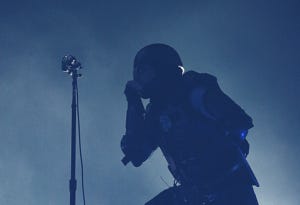
I've been pretty open about the troubles I've had understanding why so many fans of President Trump passionately defend and rationalize his countless displays of outlandish behavior. It's one thing to support him despite his ego-driven idiosyncrasies and propensity for careless rhetorical. It's another to defend, normalize, and even champion it.
"Give him a chance!" is the response I often hear whenever I throw out any kind of Trump criticism, and it's certainly good advice. I made it clear in my first column after the election that I would do exactly that. Now that he's in office, it will be easier to judge him primarily by his job performance, rather than his bluster. I'm already pretty excited about some of his cabinet picks, including James Mattis and Rex Tillerson.
That being said, giving a new president "a chance" doesn't mean that we, as a country, should ignore how he carries himself in the role. For example, when he dispatches his White House Press Secretary to excoriate the media for accurately noting that President Obama's 2008 inauguration had a higher attendance than his, that's weirdness worthy of analysis.
I'm certainly not expecting Trump to change who he is at his core (that kind of thing tends not to happen during someone's 8th decade of life), but my earnest hope (despite my deep skepticism) is that his leadership will be so effective and good for the country that these strange episodes will be likened historically to artistic expression.
What do I mean by that?
Last year, I finally got to check one of my favorite rock bands off of my concert bucket list: Tool. Their Denver stop (one of only five on a non-album tour) was sold out within minutes. Luckily I managed to snatch up three tickets online after a couple dozen tries and a fair amount of swearing. I didn't even mind that the seats were in the top section of the arena. This was Tool, after all. Just getting inside the doors would make for a special experience.
For those unfamiliar with the progressive-metal band, I think it's safe to describe them as unique. They have a distinctive, hard-hitting psychedelic sound, and the lyrical work of iconic front-man Maynard James Keenan is phenomenal. The group has been highly successful for about 25 years, but they rarely release a new album (their last one was ten years ago). The band members insist on personal privacy, not even appearing in their videos or album cover art (other than in abstract imagery).
So, catching them in concert is kind of a big deal.
The capacity crowd roared that night as the band entered the stage. Three narrow spotlights exposed the guitarist, bassist, and drummer as they fired up a hit song that was instantly familiar. The place went electric, and attendees eagerly awaited the appearance of lead singer, Keenan. But when his unmistakable voice carried through the arena speakers, Keenan was nowhere to be seen.
Several minutes in, he had yet to emerge. He sounded great (as did the music), but his whereabouts remained a mystery. The first song ended and the next one began. Still no Keenan. I didn't get it. Neither did my friends nor the people seated around us. We were high up in the arena, but we had a clear view of the stage, and the singer simply wasn't on it.
My eye finally happened to catch a little movement from behind the drummer (whose set was seated on an elevated black stage along the back edge of the main stage). After several seconds, I managed to make out the outline of a man standing there, covered from head to toe in black garb (including a helmet). It was Keenan. And he stayed there, cloaked in the shadows and nearly invisible from everyone in the arena, for the entirety of the concert.
Keenan has been known to be a bit eccentric, but literally hiding from the fans for two hours (who paid good money to see him perform live) seemed particularly bizarre -- even disrespectful. Still, after a few more songs and in an otherwise dazzlingly superb performance, the stunt started to lose its aura of weirdness. It began to feel like some form of personal, artistic expression that we mere mortals in the audience may not have been capable of grasping, but felt compelled to respect nonetheless. I'm convinced that no one that night went home feeling short-changed.
This is the best case scenario for Trump's legacy -- that he will be so remarkably good at the job of U.S. President that his outrageous impulses and confusing demeanor will at some point be of little or no consequence. I suspect that many of his supporters already view him this way, as an unconventional phenom or persona who is harmlessly expressing himself. That, however, is a mistake.
While in office, a president's conduct matters. A president's words and temperament carry enormous weight, both domestically and abroad.
Giving Trump a chance doesn't mean turning a blind eye to irregularities. He's not some musician whose job it is to entertain fans. He's the man we hired to lead the country, and as a public servant he must be held accountable.
Those in the media, whose job it is to hold him accountable, are well within their rights to push back against the oddities...even if many of those same people unfortunately chose to treat our previous president more like a rock star.












